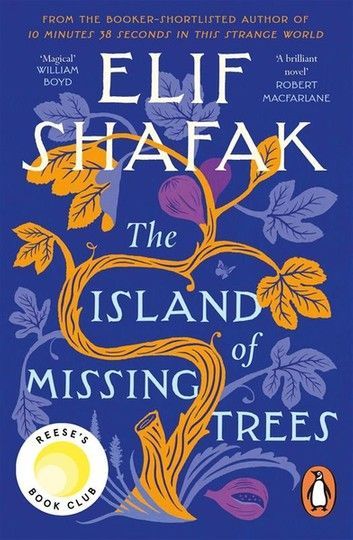
The Island of Missing Trees
A rich, magical new novel from the Booker-shortlisted author of 10 Minutes 38 Seconds in this Strange World - available for pre-order now It is 1974 on the island of Cyprus. Two teenagers, from opposite sides of a divided land, meet at a tavern in the city they both call home. The tavern is the only place that Kostas, who is Greek and Christian, and Defne, who is Turkish and Muslim, can meet, in secret, hidden beneath the blackened beams from which hang garlands of garlic, chilli peppers and wild herbs. This is where one can find the best food in town, the best music, the best wine. But there is something else to the place: it makes one forget, even if for just a few hours, the world outside and its immoderate sorrows. In the centre of the tavern, growing through a cavity in the roof, is a fig tree. This tree will witness their hushed, happy meetings, their silent, surreptitious departures; and the tree will be there when the war breaks out, when the capital is reduced to rubble, when the teenagers vanish and break apart. Decades later in north London, sixteen-year-old Ada Kazantzakis has never visited the island where her parents were born. Desperate for answers, she seeks to untangle years of secrets, separation and silence. The only connection she has to the land of her ancestors is a Ficus Carica growing in the back garden of their home. In The Island of Missing Trees, prizewinning author Elif Shafak brings us a rich, magical tale of belonging and identity, love and trauma, memory and amnesia, human-induced destruction of nature, and, finally, renewal. 'A brilliant novel -- one that rings with Shafak's characteristic compassion for the overlooked and the under-loved, for those whom history has exiled, excluded or separated. I know it will move many readers around the world, as it moved me' Robert Macfarlane 'A wonderfully transporting and magical novel that is, at the same time, revelatory about recent history and the natural world and quietly profound' William Boyd 'This is an enchanting, compassionate and wise novel and storytelling at its most sublime' Polly Samson 'A wise novel of love and grief, roots and branches, displacement and home, faith and belief. THE ISLAND OF MISSING TREES is balm for our bruised times' David Mitchell 'An outstanding work of breathtaking beauty' Lemn Sissay 'A writer of important, beautiful, painful, truthful novels' Marian Keyes 'Lovely heartbreaker of a novel centered on dark secrets of civil wars & evils of extremism: Cyprus, star-crossed lovers, killed beloveds, damaged kids. Uprootings. (One narrator is a fig tree!)' Margaret Atwood on Twitter
Reviews
Lorna Rivett@lornaisles
Mira Hill@mirabellahill
Saffia@saffia
Arissa@aaws
loisesya@lois
Winnie@terminallyfine
Ani Velasquez@aniruokay
Noor @noorsaeed
Yash@yashrydz
Nikola@niky_jandova
Paige Woodie@plwoodie
Robyn Harley@robynhw1
Suzanne Owens@willows
Luca Katona@lucaakatona
Camille Wenner@camwen
Fraser Simons@frasersimons
Yagmur su ozdemir@yagmursu
Laura Dobie@MovingToyshop
Elena Menendez@baghoot
M M@expandingbookshelves
Sara @saragoe
Laure Issa@lorita
beea@beeasbooks
Iris@irisak
Highlights
Saffia@saffia
Saffia@saffia
Saffia@saffia
Saffia@saffia
Saffia@saffia
Saffia@saffia
Lorna Rivett@lornaisles
Lorna Rivett@lornaisles
Page 259
Lorna Rivett@lornaisles
Page 262
beea@beeasbooks
Arissa@aaws
Arissa@aaws
Page 187
Arissa@aaws
Page 65
Arissa@aaws
Page 65
Arissa@aaws
SF. Sutcliffe @sfs
loisesya@lois
Page 343
loisesya@lois
Page 313
Maisha Prather@maishaprather
Page 360
Ani Velasquez@aniruokay
Ani Velasquez@aniruokay
Ani Velasquez@aniruokay
Ani Velasquez@aniruokay
Robyn Harley@robynhw1